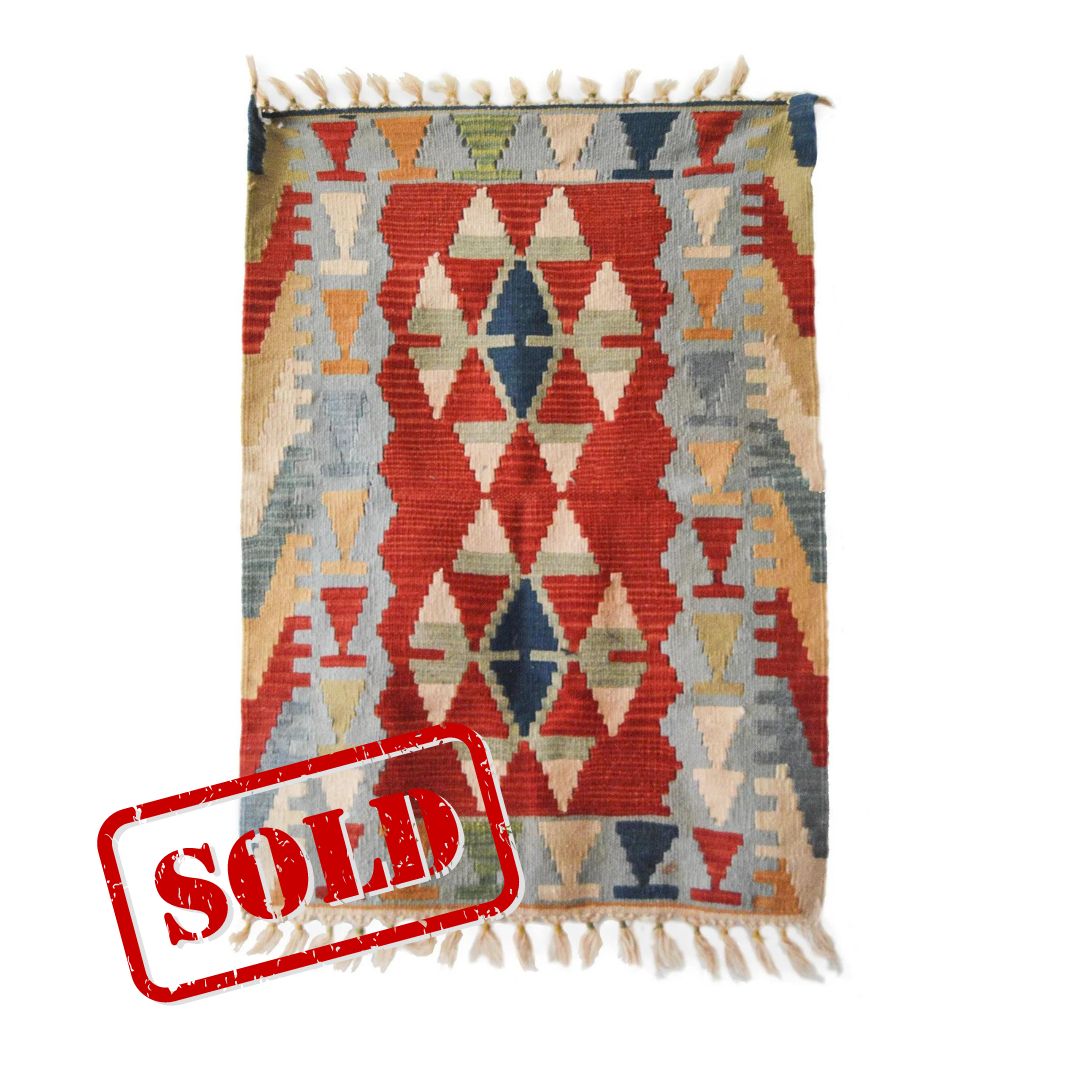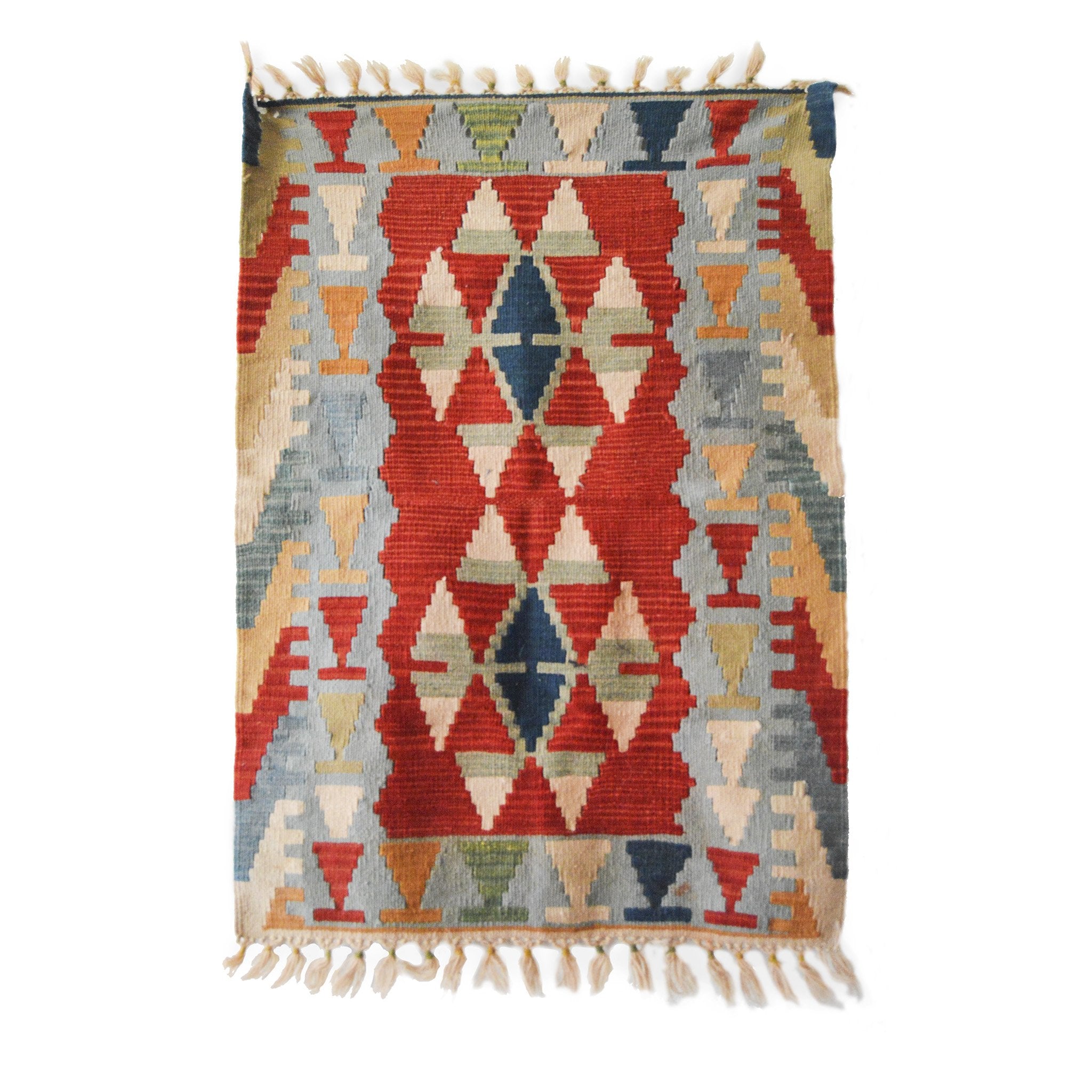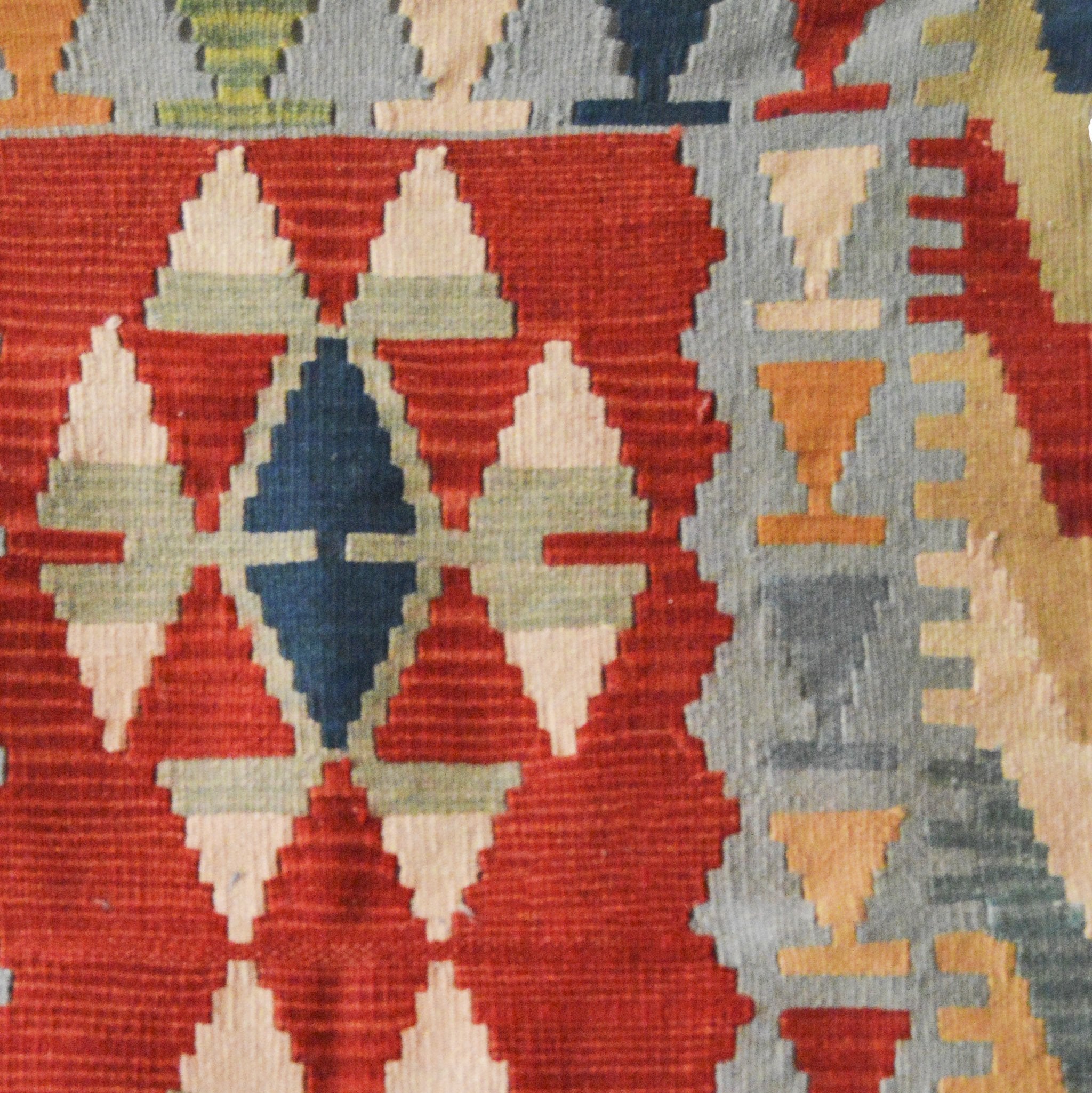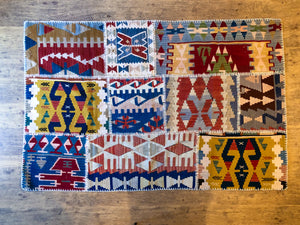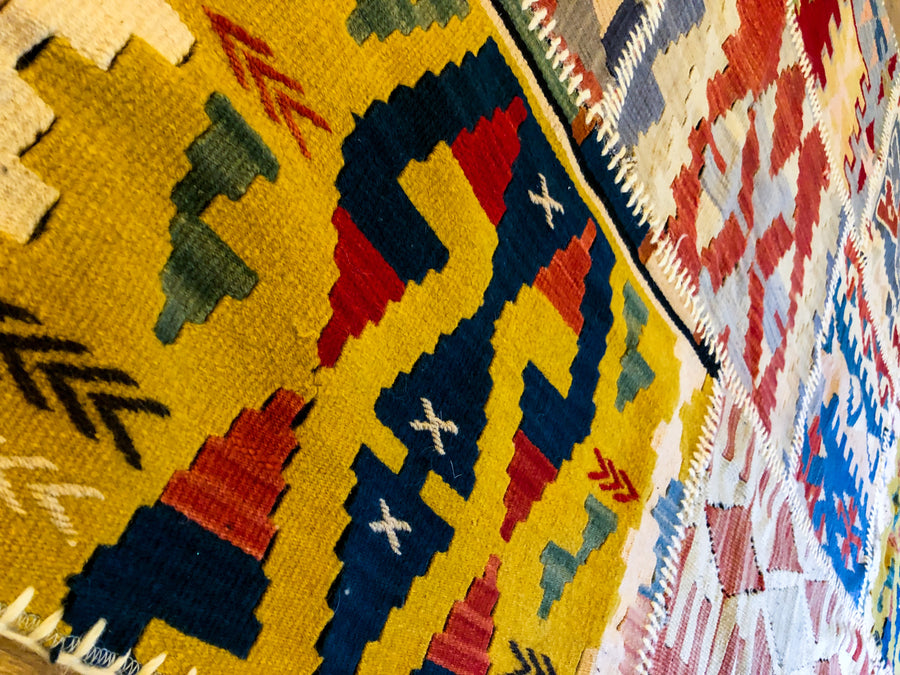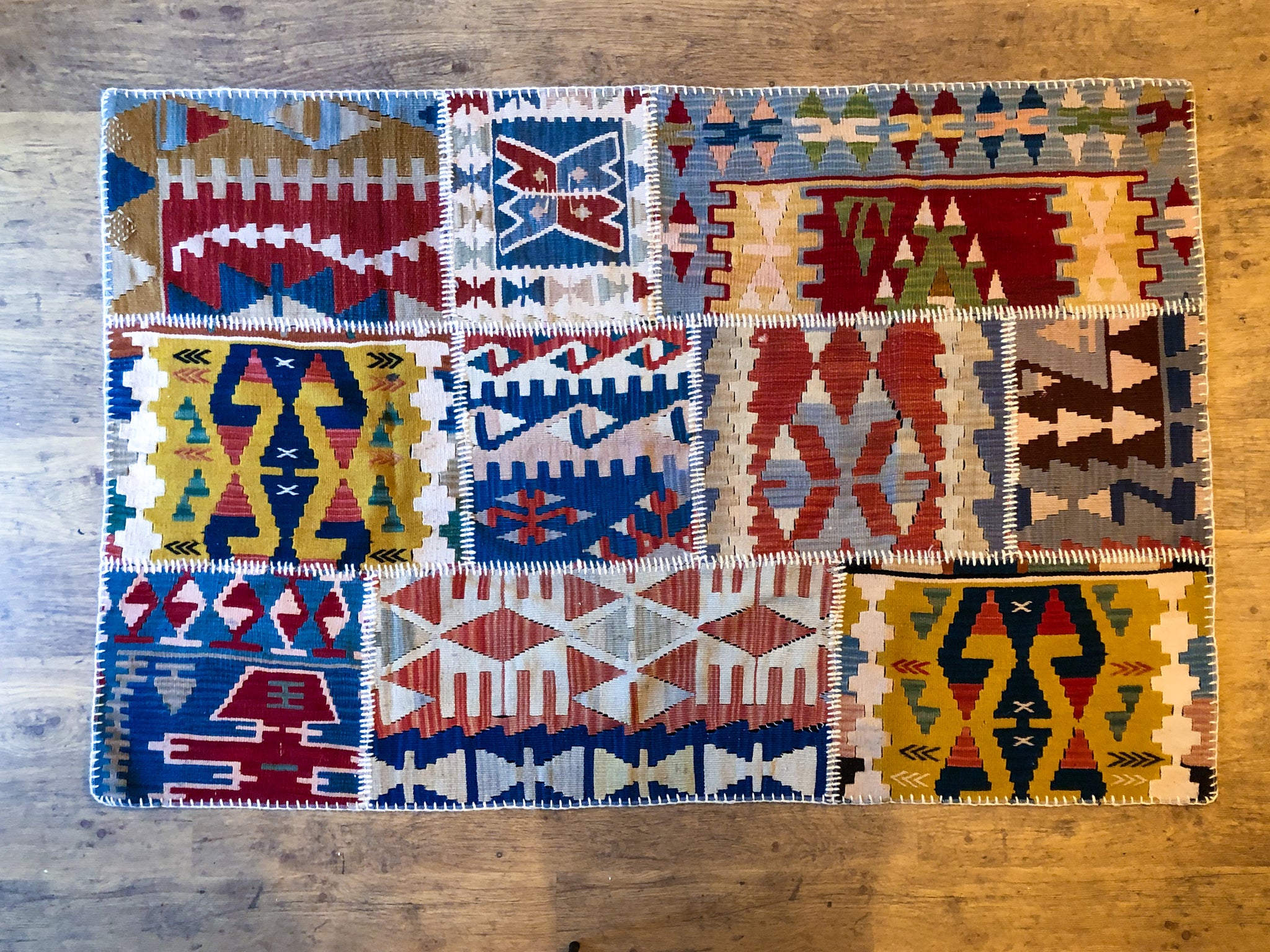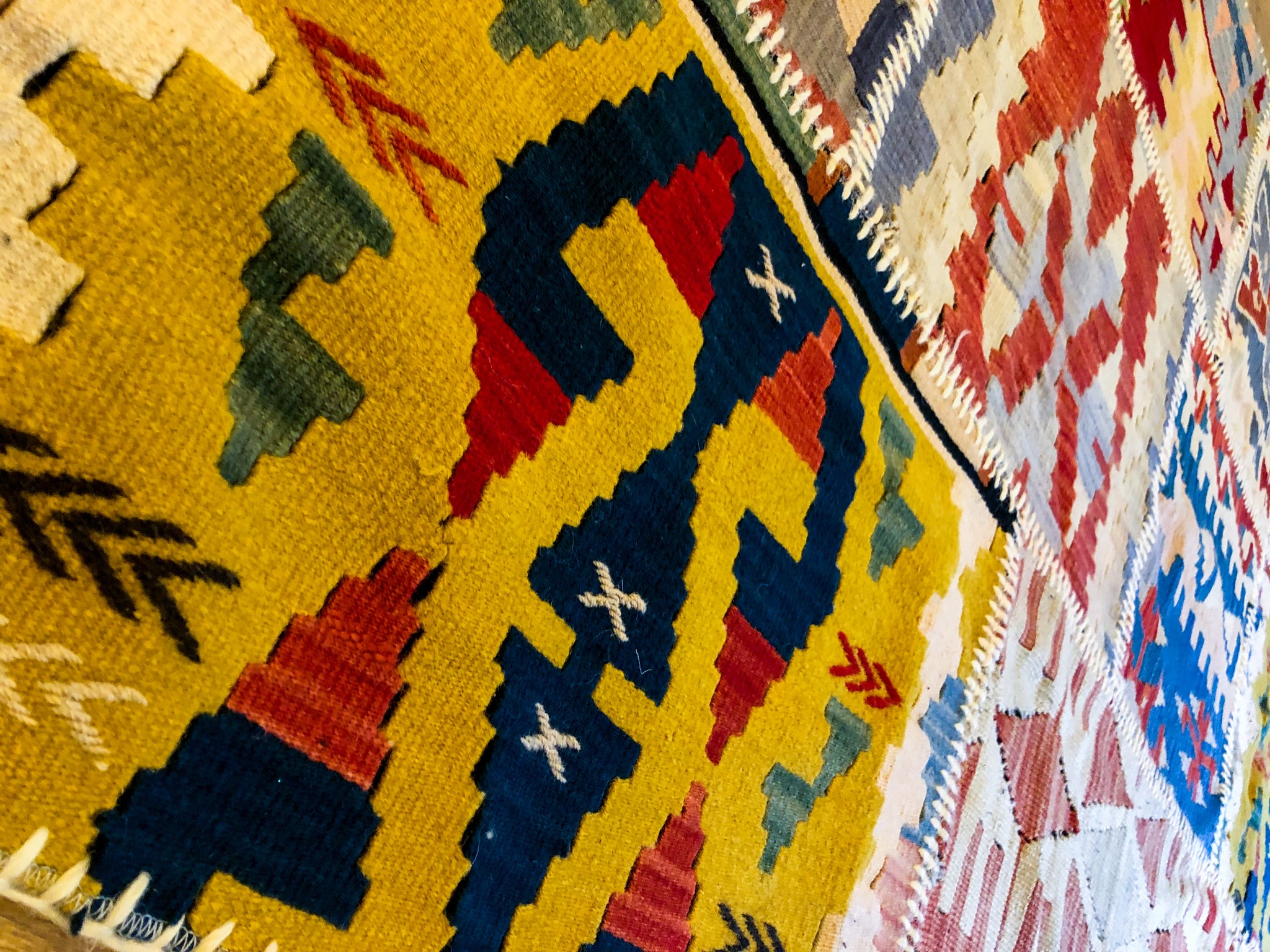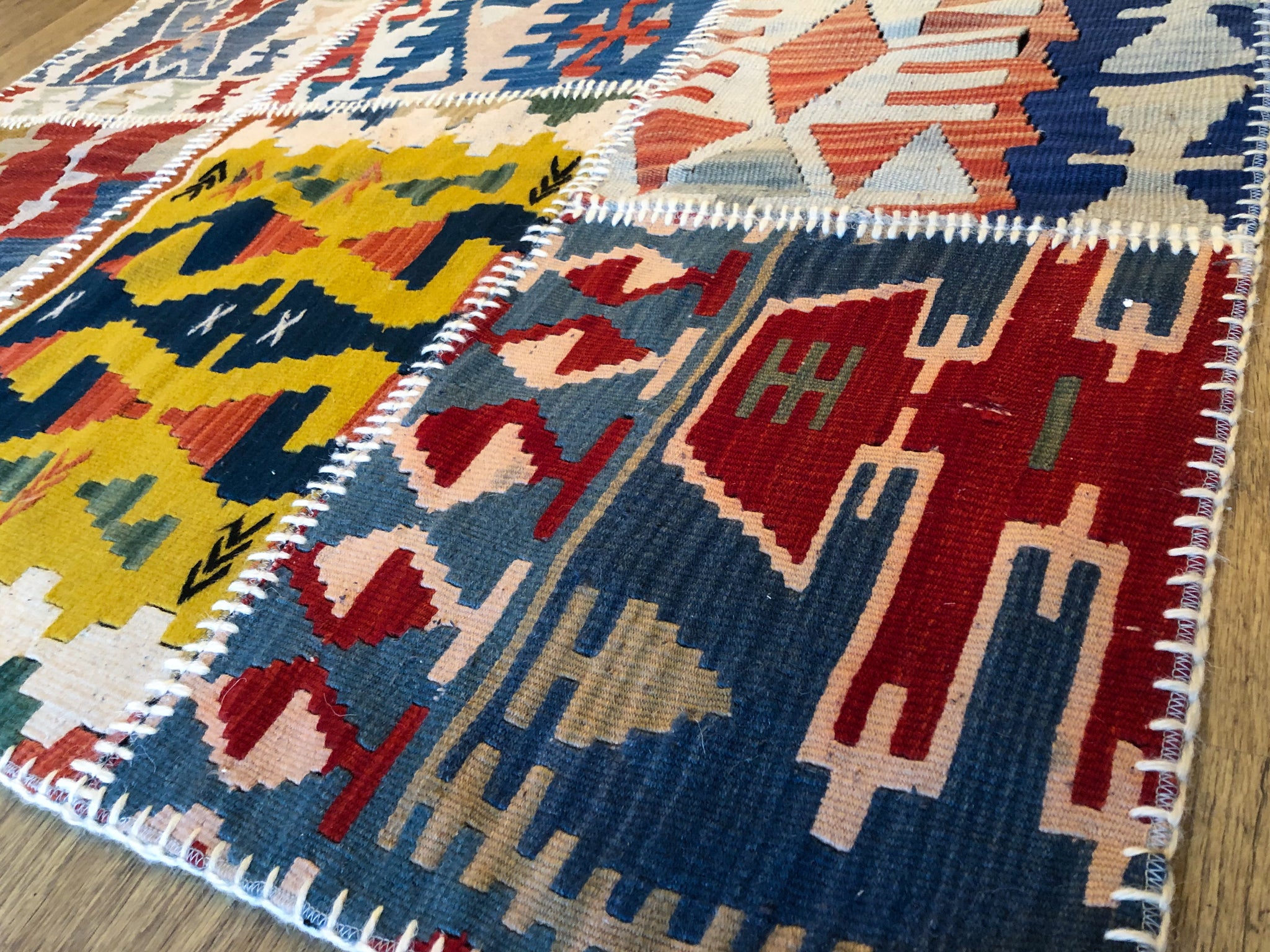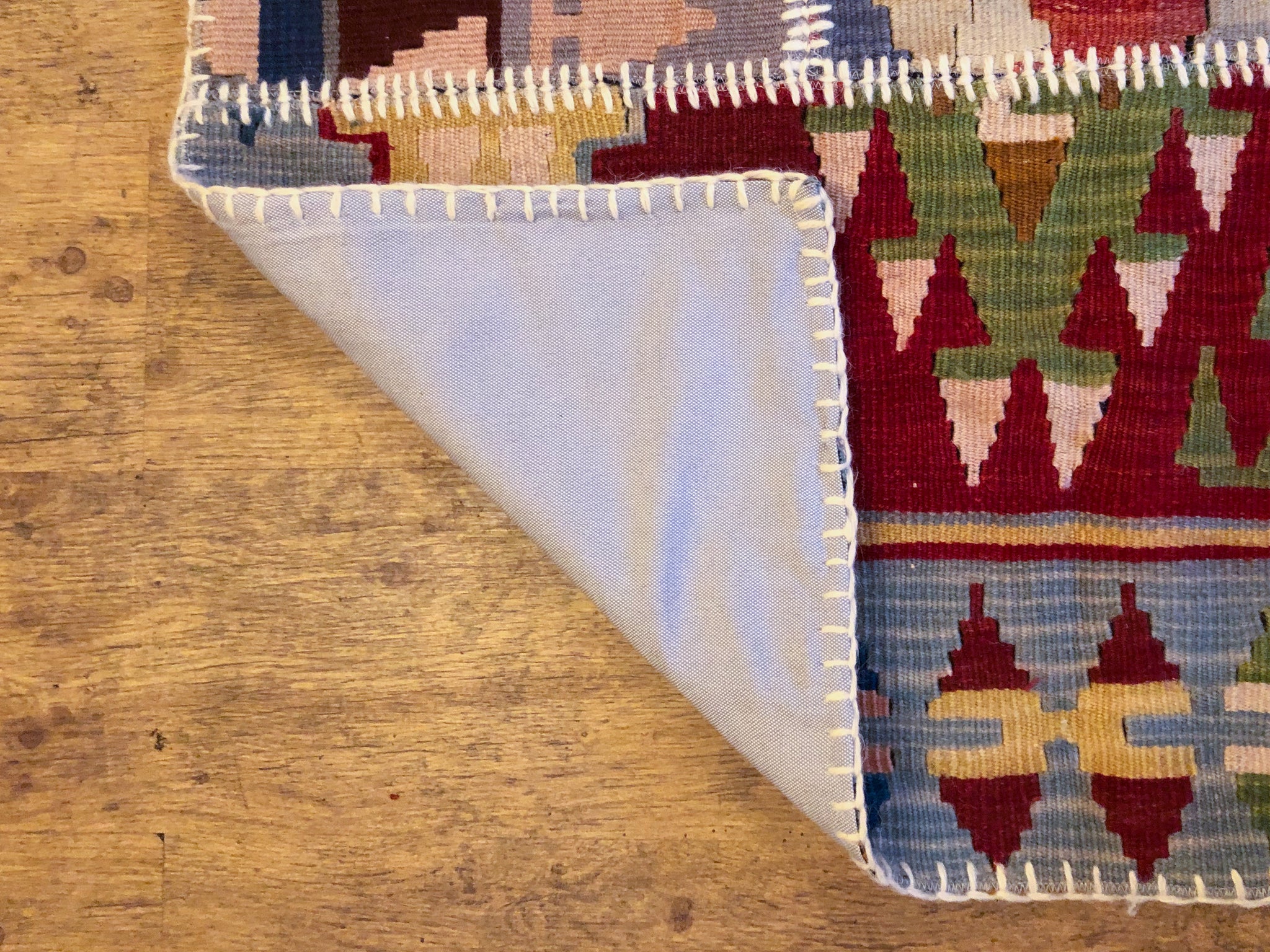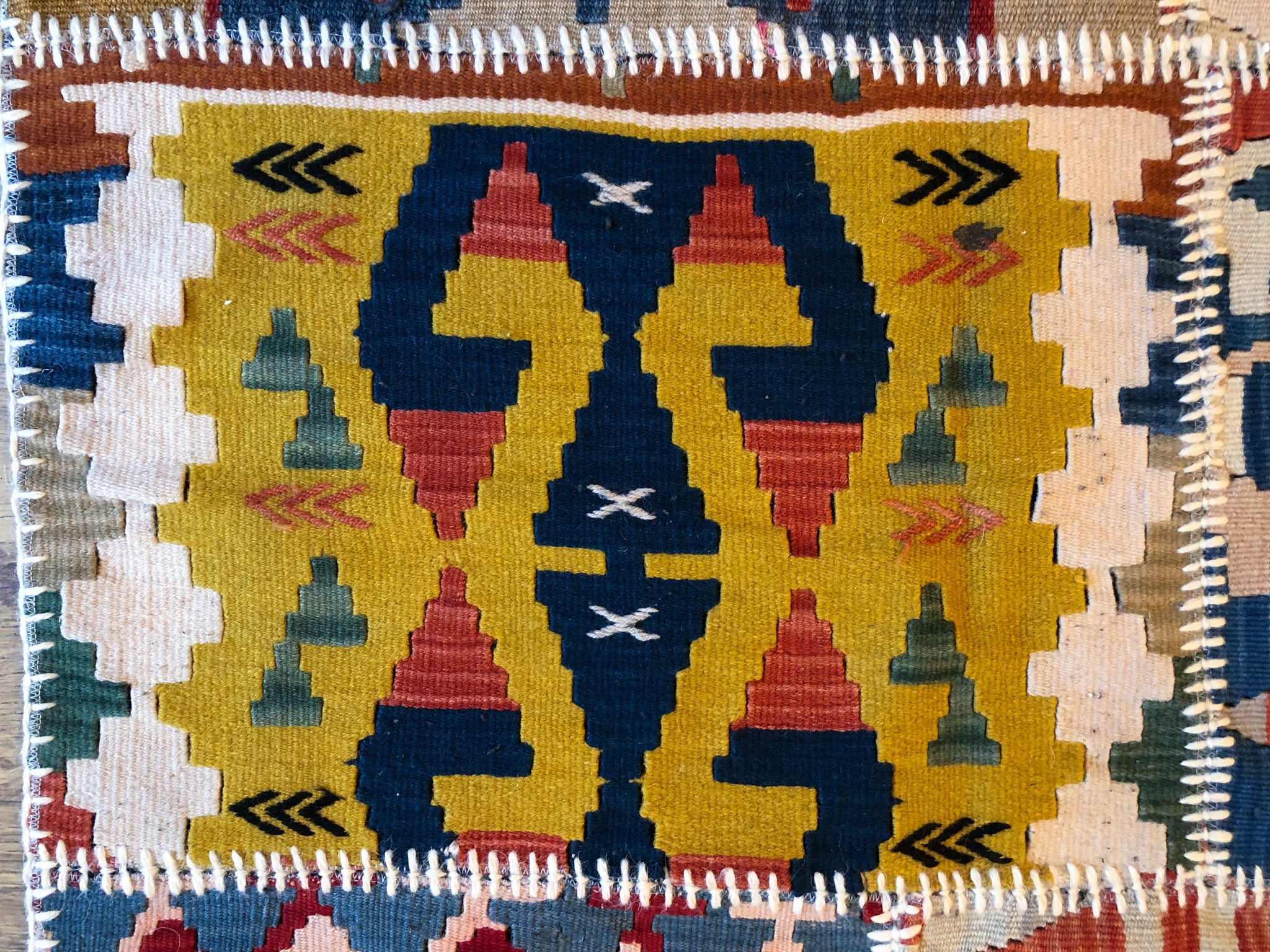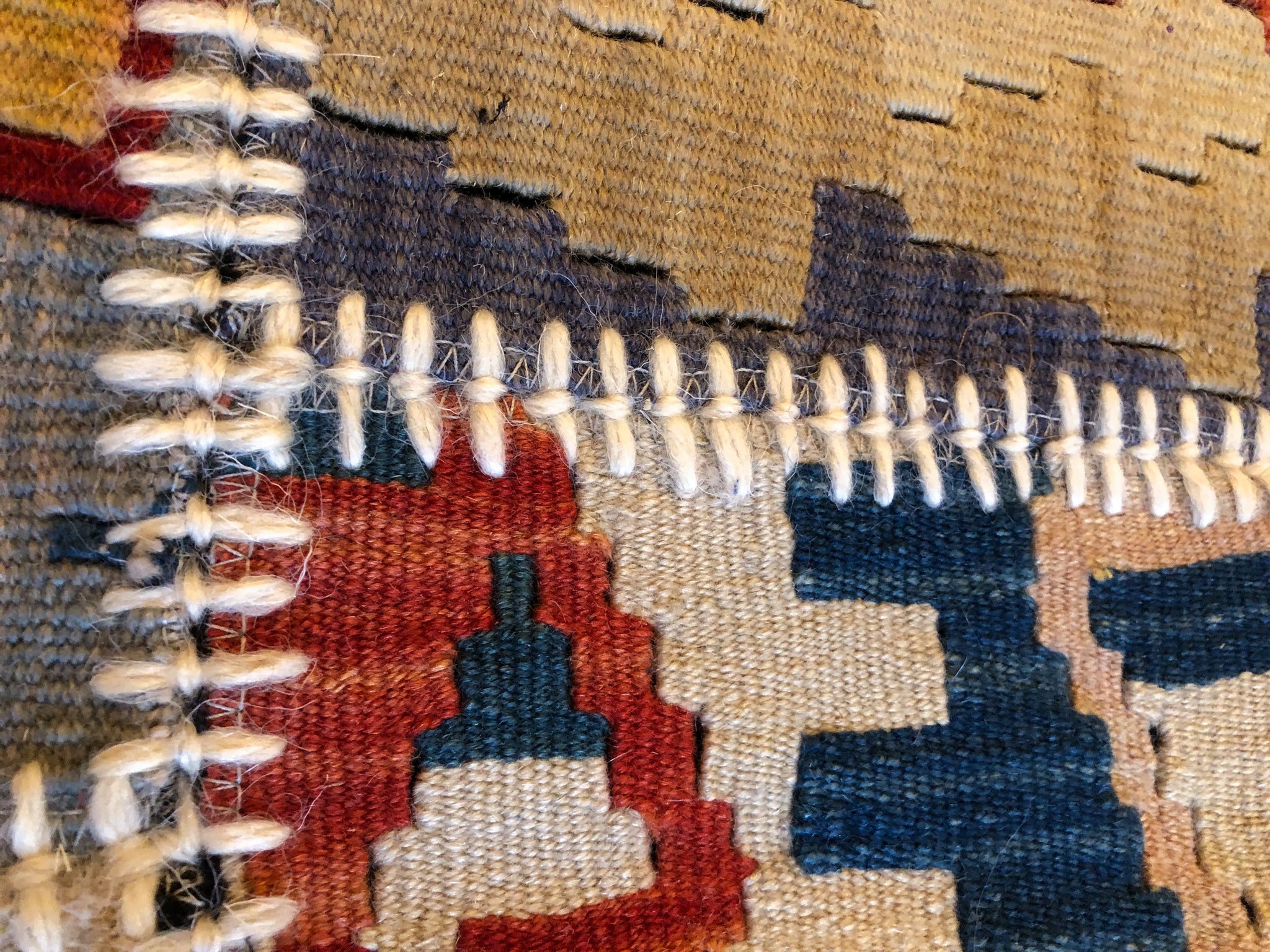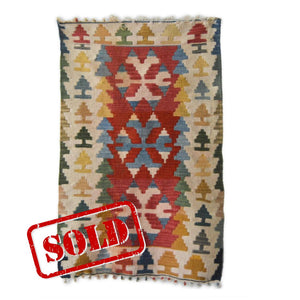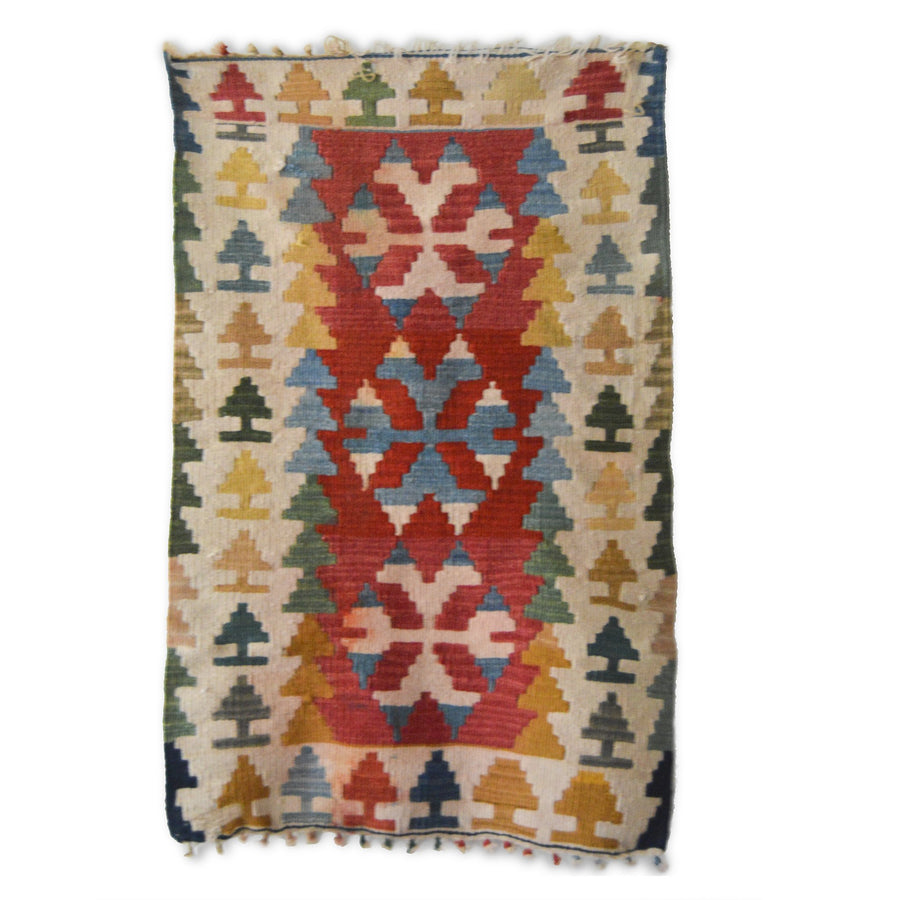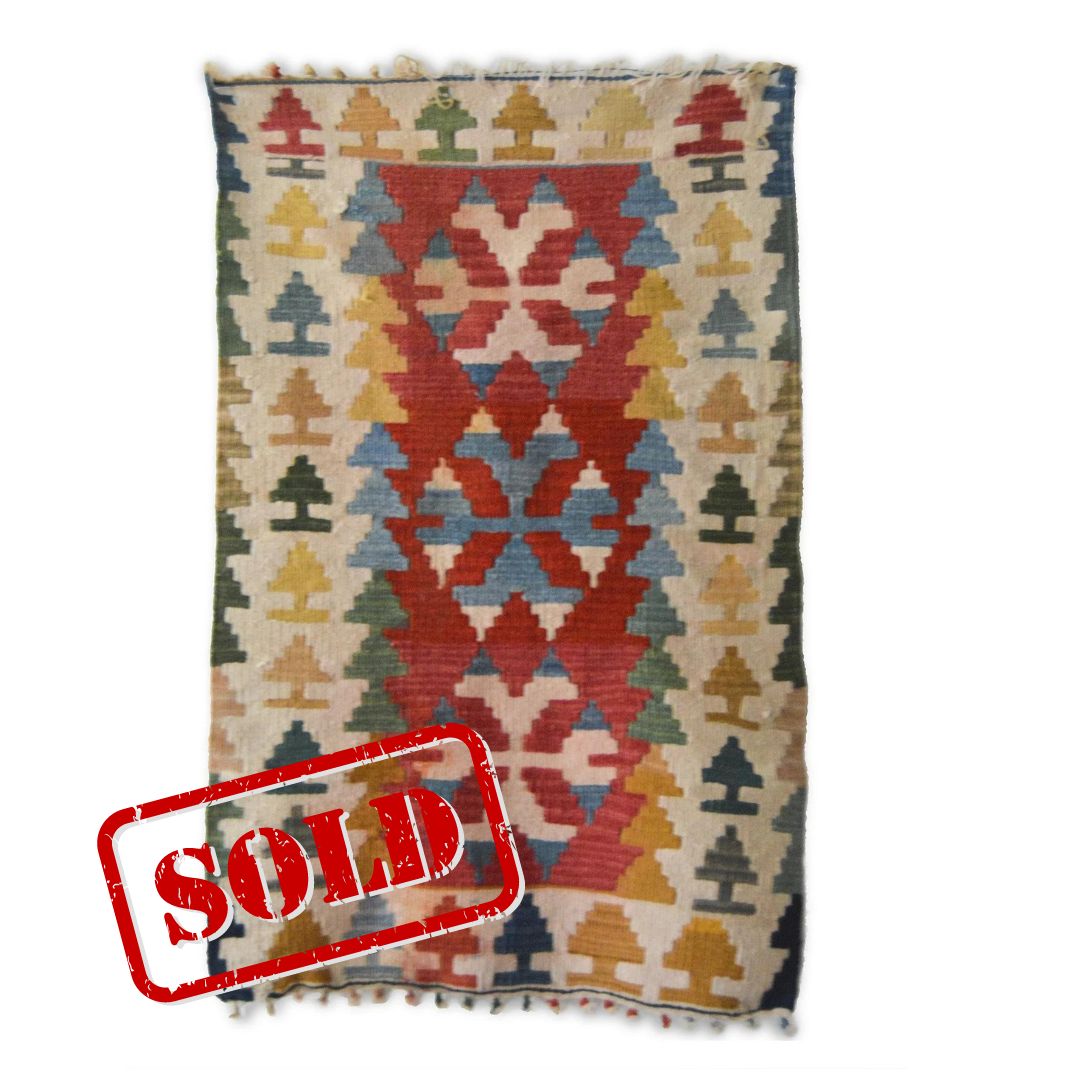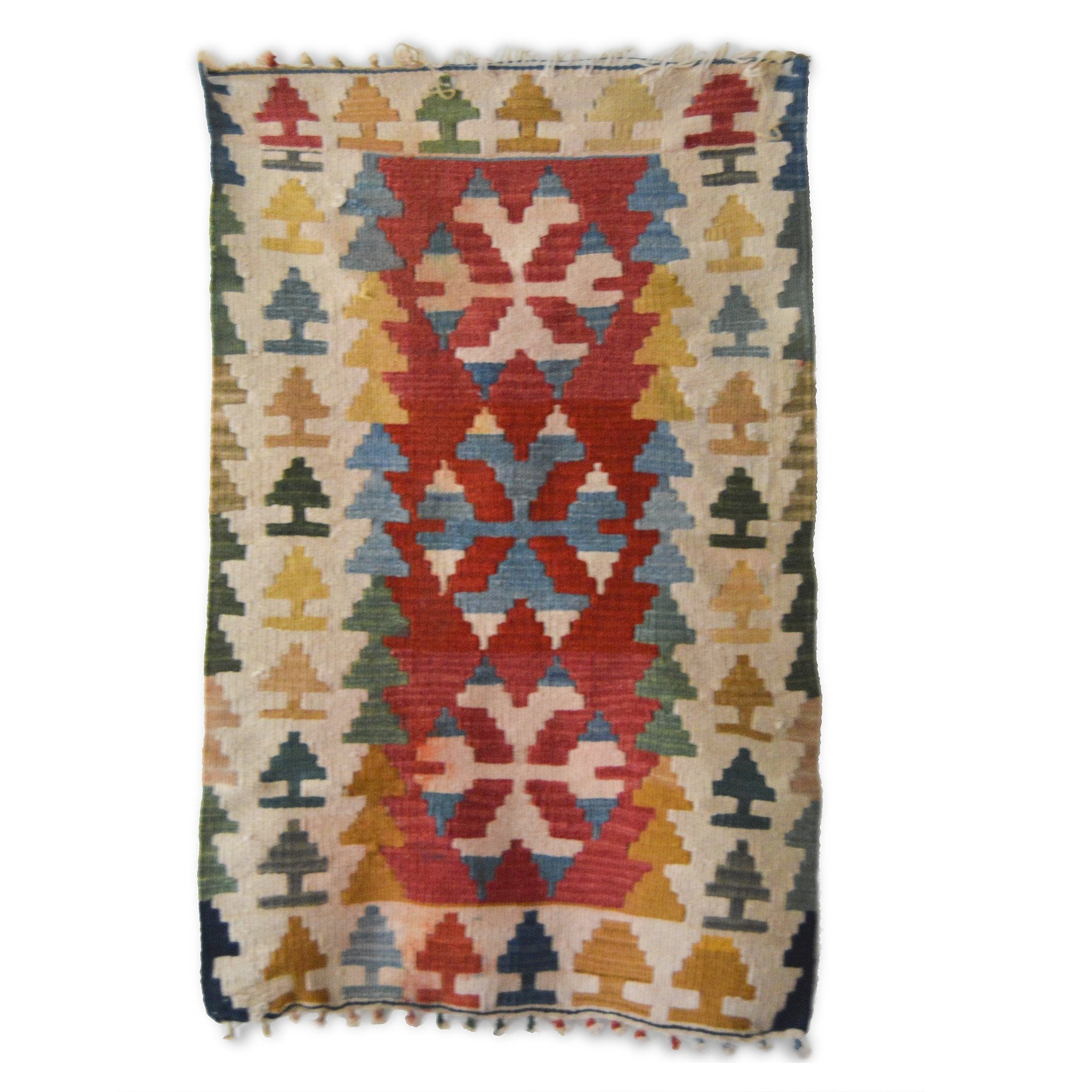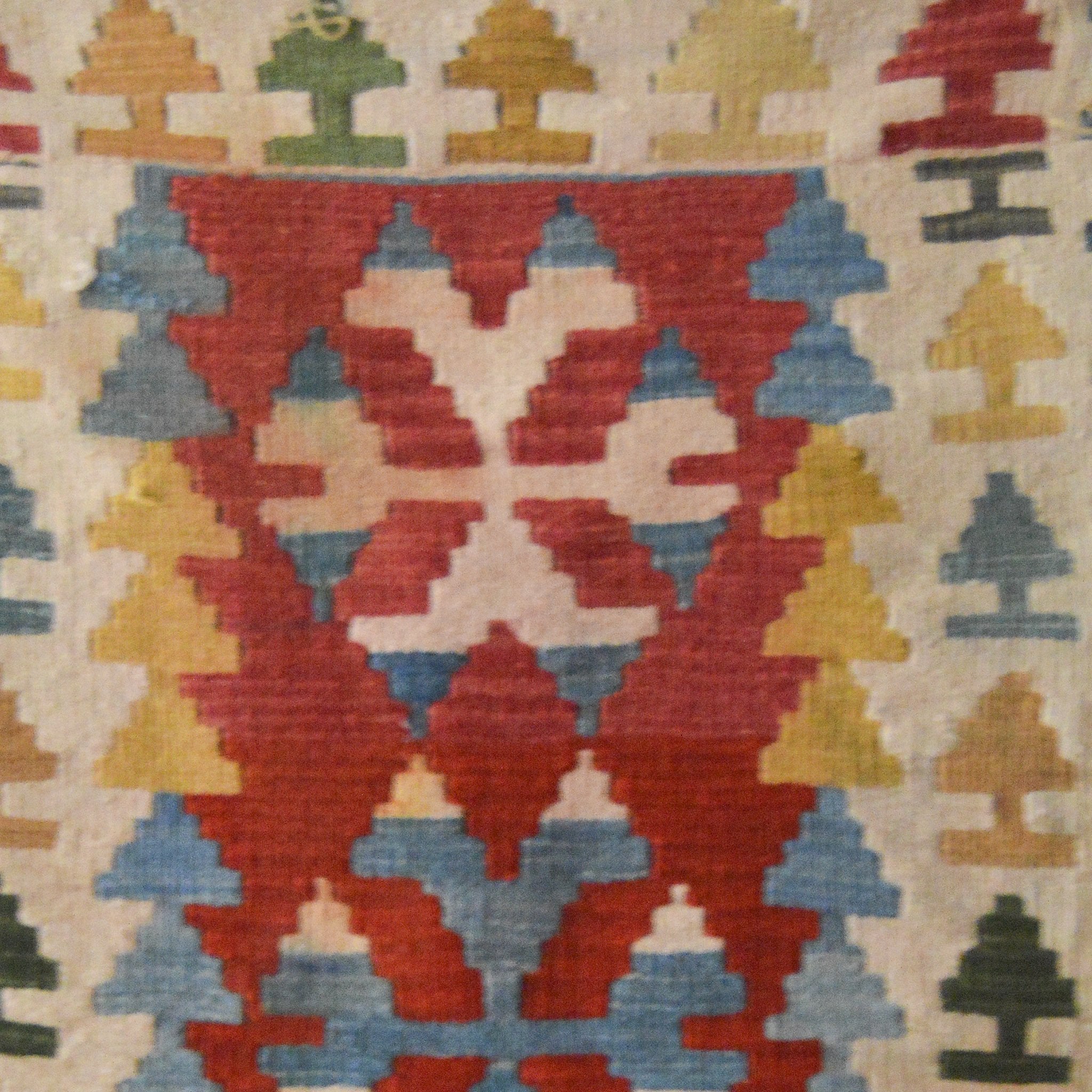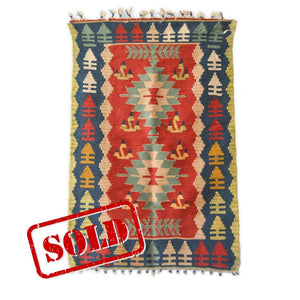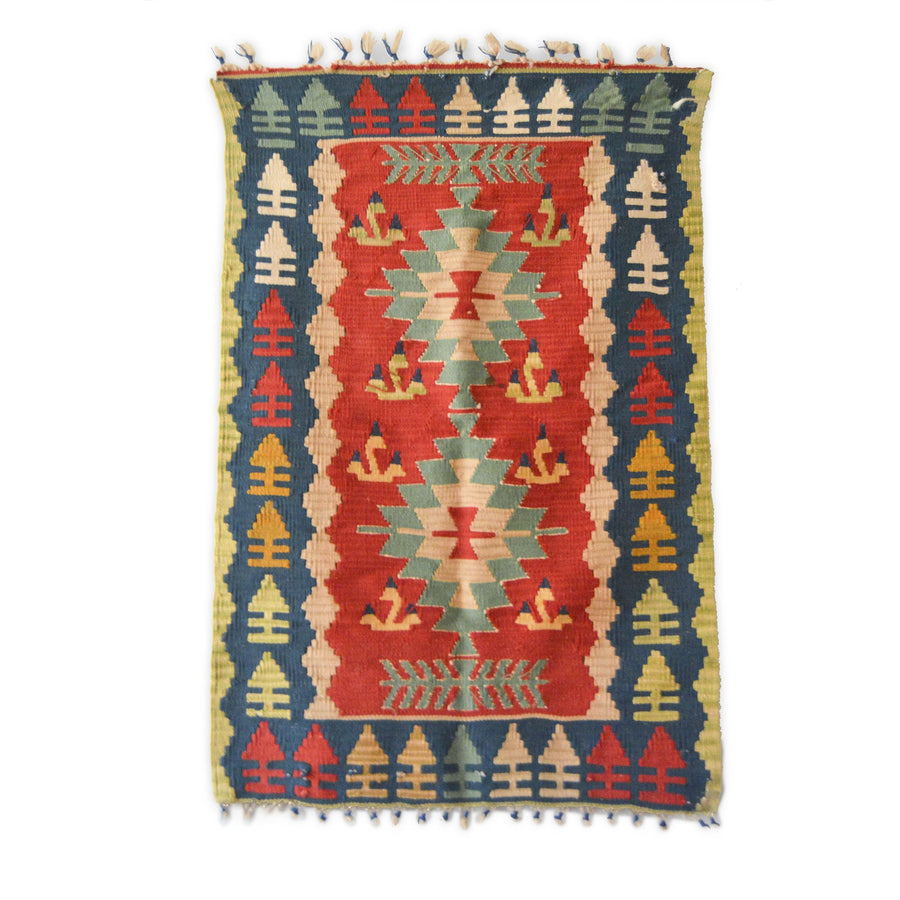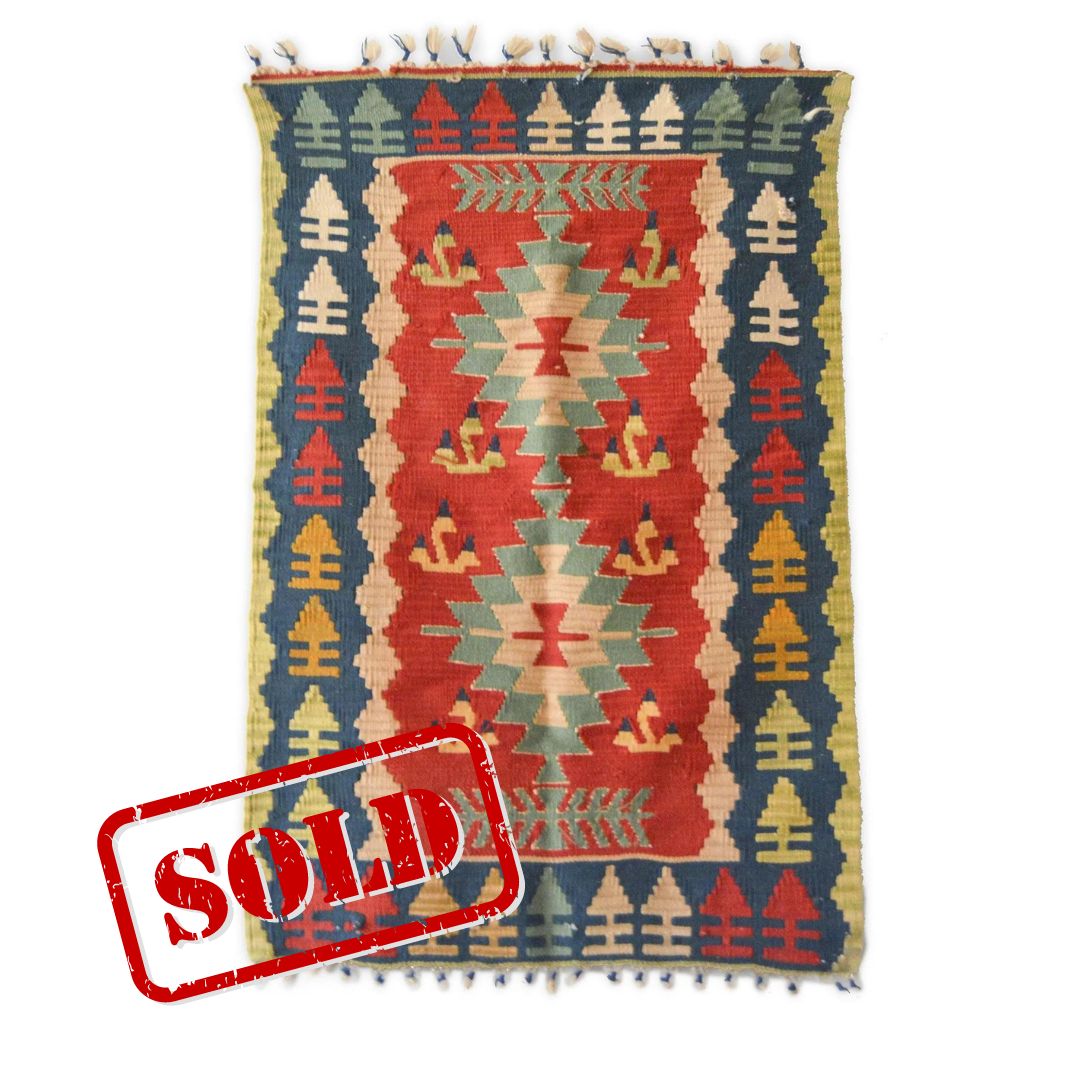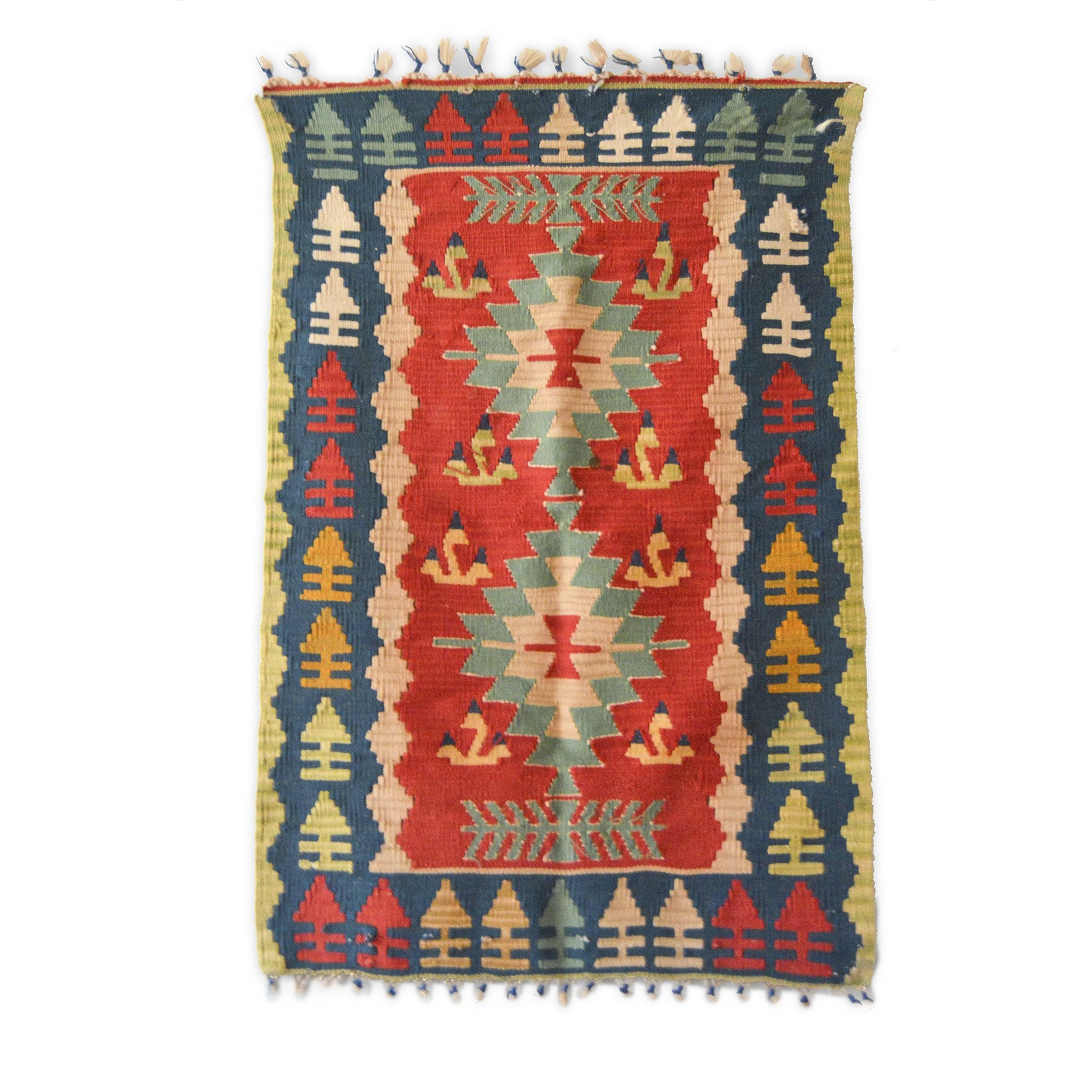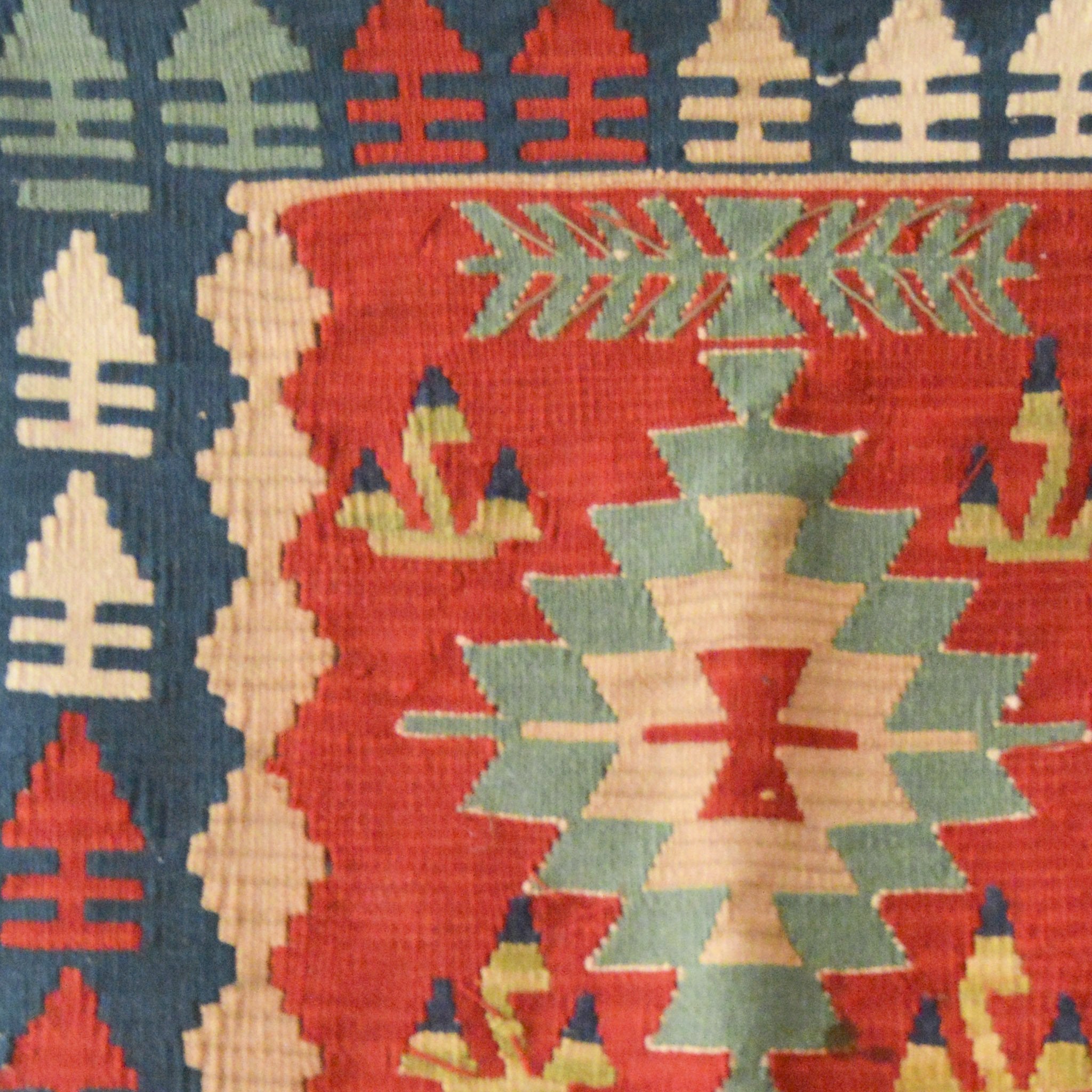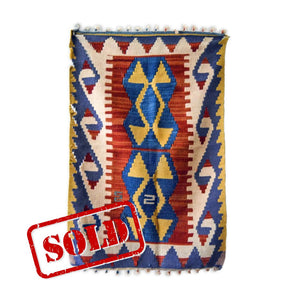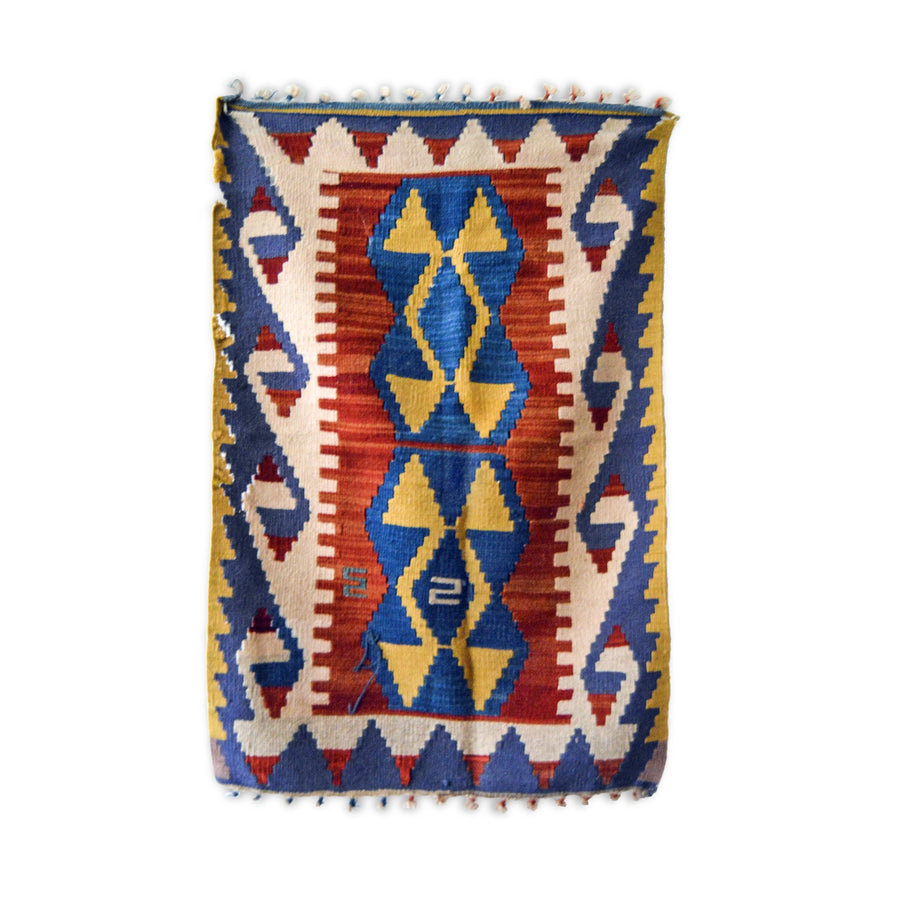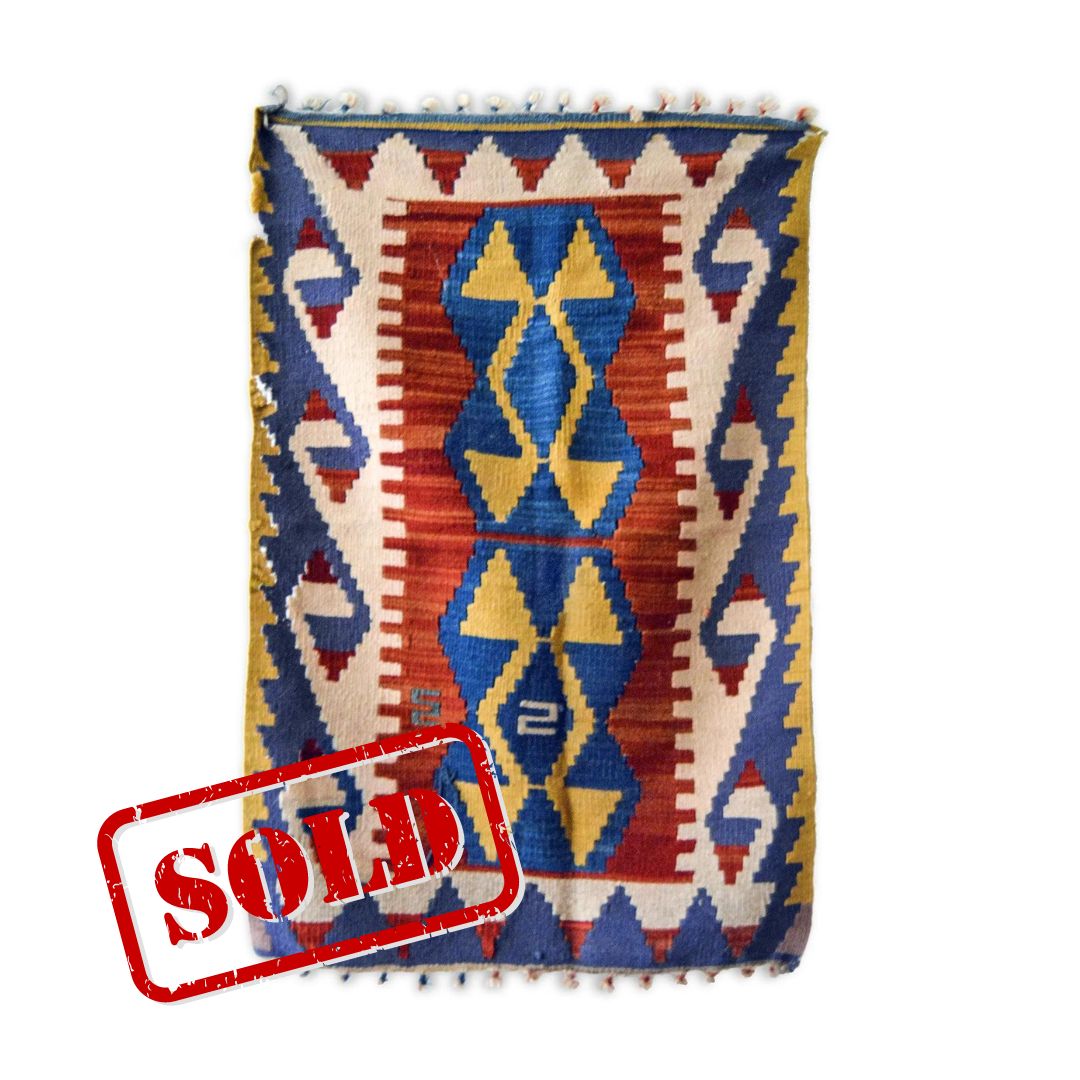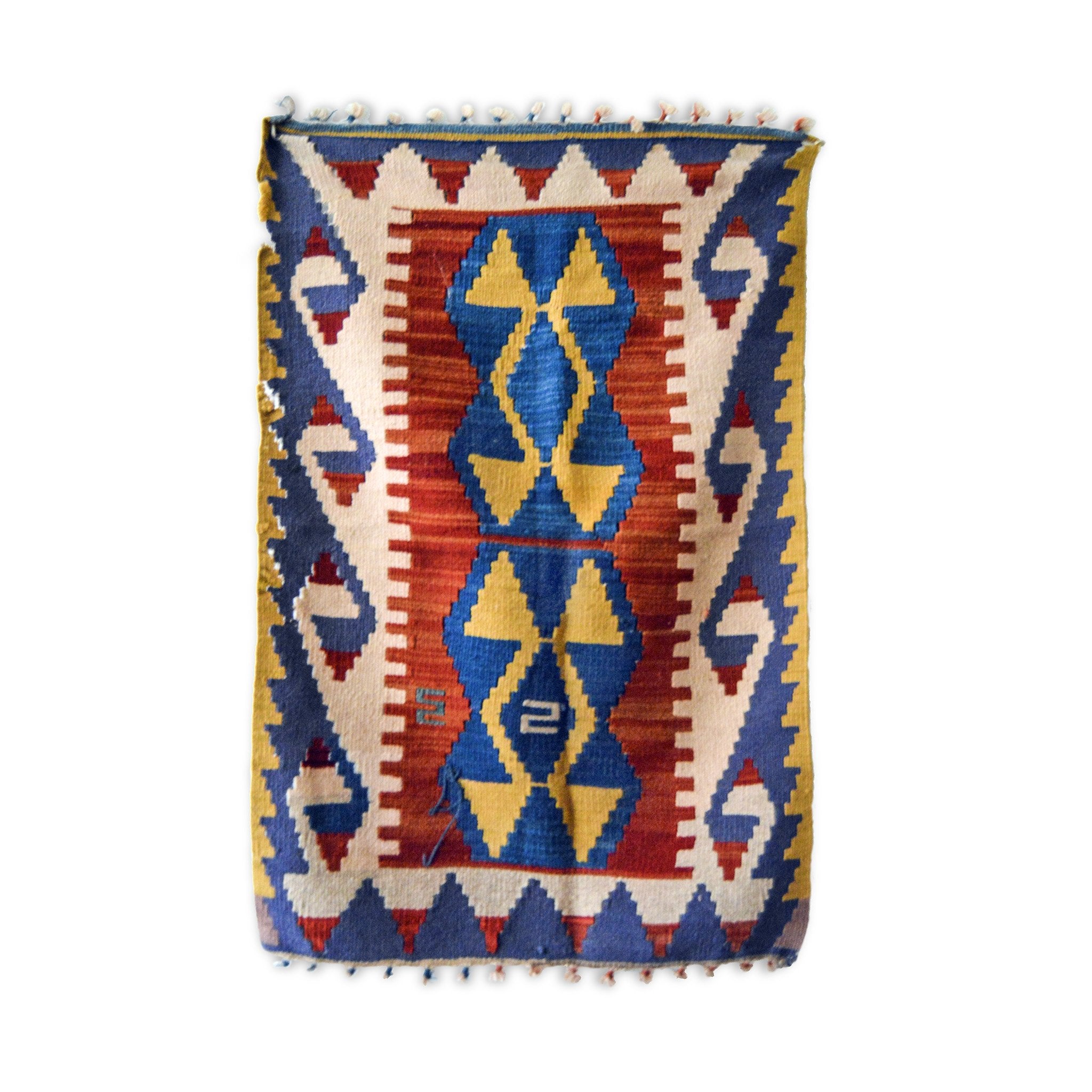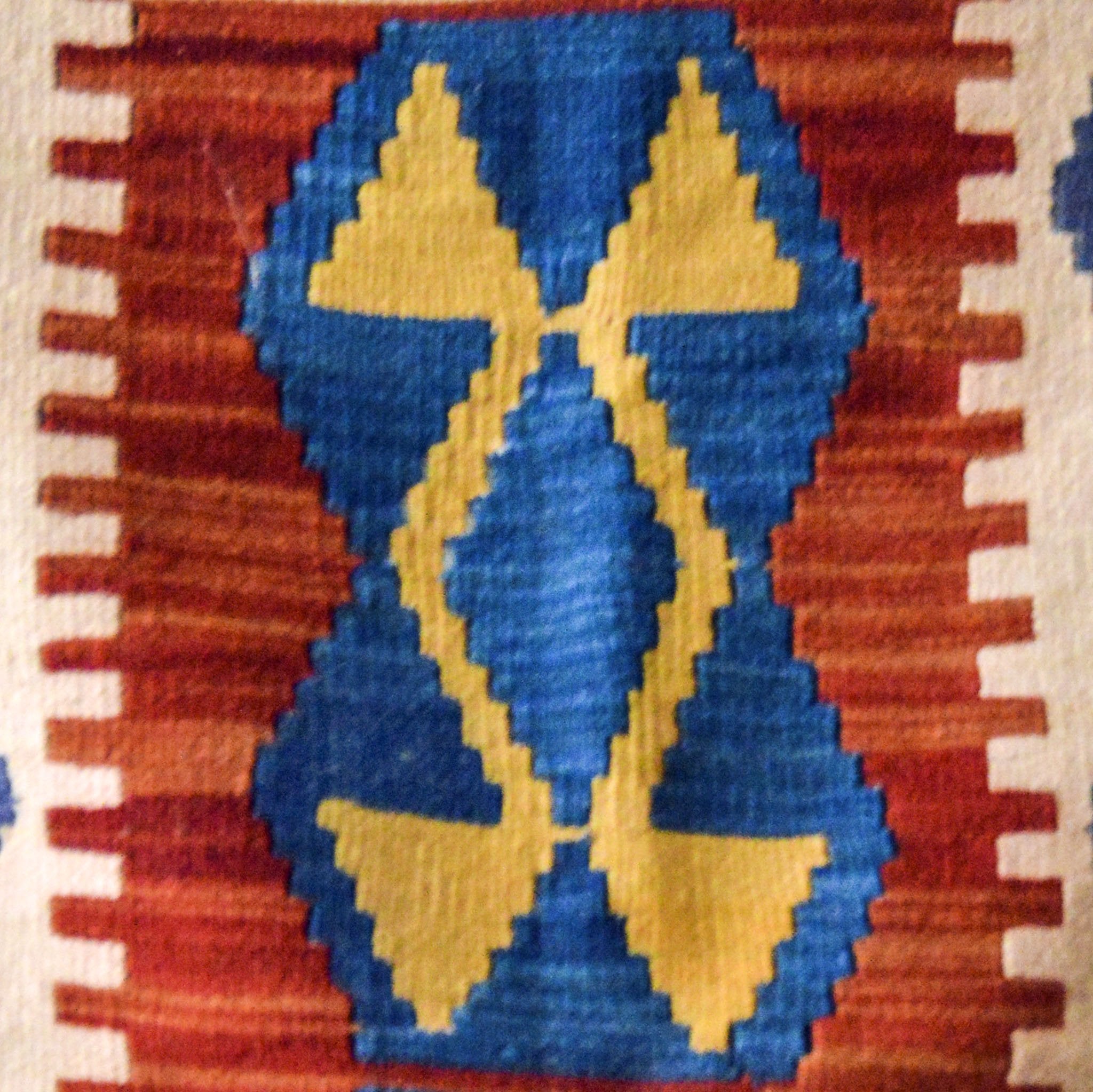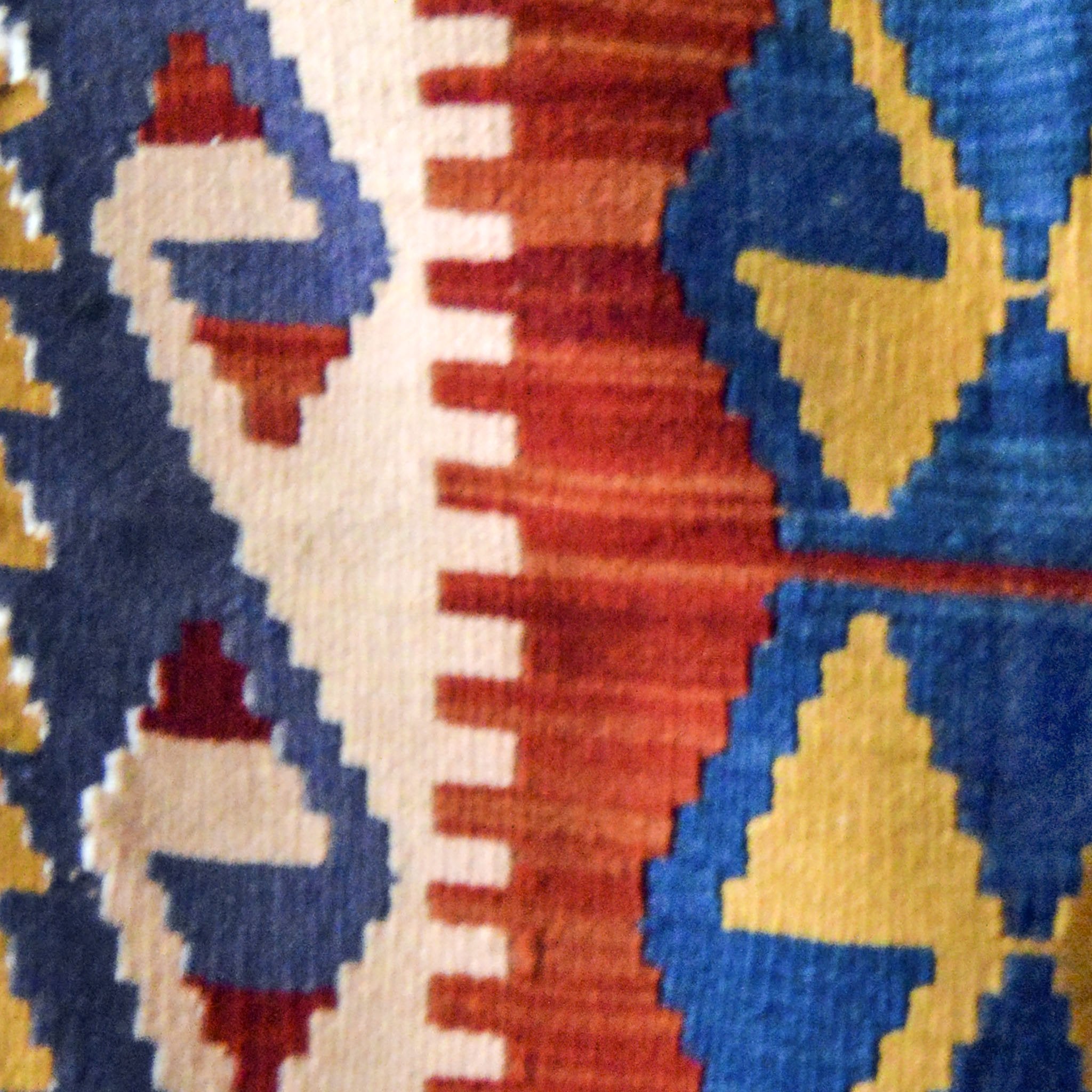Authentic Anatolian Kilim with Wolf's Mouth Motif | Earthy Tones | 80 cm x 130 cm
604
Sold Out €175,00
This authentic, handmade Turkish kilim is in beautiful, earthy tones of muted green, pale blue, yellow and red. It features a traditional wolf's mouth motif first used in ancient times to protect tribes and their cattle from wolves, due to the belief that one could be protected from something if they imitated it in their weaving. The symbol has since developed to represent general protection from monsters and evil forces.
Each vintage kilim we offer in lostinamsterdam.com is one-of-a-kind, authentic and handmade. Our kilims are made with organic wool and dyed with 100% natural vegetable dye. All our kilim rugs are professionally cleaned and odour free.
Collections: Home Decor, Unique Autentic Handmade Kilim | Rugs
Related Items
Handmade Kilim rug made of natural wool
€499,00
Hand woven autentic rug 1,80 mx 120 m.
Organic wool dyed with plant based dye. Stitched together from 10 different kilim pieces in various colours. Under side is made of thick linen.
View full product details
Authentic Handmade Anatolian Kilim with Scorpion Motif for Protection | 70 cm x 110 cm
Sold Out €125,00
Each vintage kilim we offer in lostinamsterdam.com is one-of-a-kind, authentic and handmade. Our kilims are made with organic wool and dyed with 100% natural vegetable dye. All our kilim rugs are professionally cleaned and odour free.
View full product details
Handmade Authentic Anatolian Kilim with Evil Eye/Tree of Life/Family Unity Motifs | 80 cm x 130 cm
Sold Out €175,00
Authentic Handmade Kilim with Hook Motif | 80 cm x 130 cm
Sold Out €175,00
Authentic, handmade kilim with hook motif to protect your home from evil. This kilim has particularly vivd colours in striking cobalt blue, yellow, and red. A timeless, stand-out piece for your home.
Each vintage kilim we offer in lostinamsterdam.com is one-of-a-kind, authentic and handmade. Our kilims are made with organic wool and dyed with 100% natural vegetable dye. All our kilim rugs are professionally cleaned and odour free.
- Payments & Security
- Shipment & Returns
- Terms & Conditions
- Contact Us
- Buyer Protection Program
- About Us
- Buying Alcoholic Drinks
Sign up to get the latest on sales, new releases and more …
© 2024 Lost In Amsterdam Webshop: The Best From Amsterdam.
Lost In Amsterdam
Designed By Digizoom

